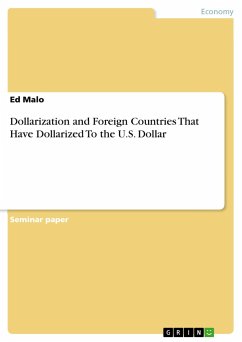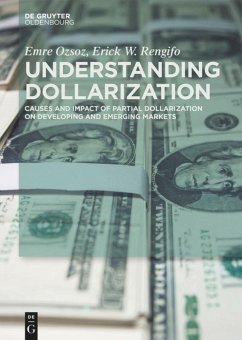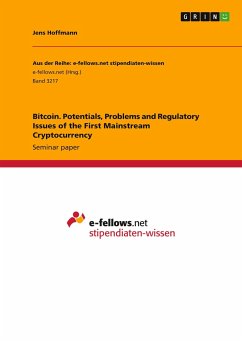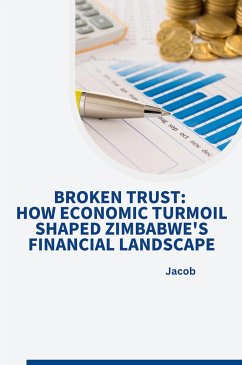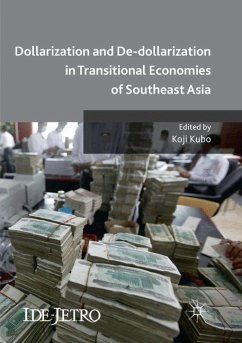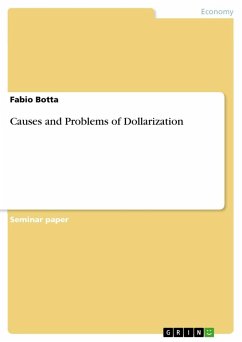
Causes and Problems of Dollarization

PAYBACK Punkte
0 °P sammeln!
Seminar paper from the year 2020 in the subject Economics - Foreign Trade Theory, Trade Policy, grade: 1,3, University of Leipzig (Institute for Economic Policy), course: Financial Development and Innovation in Developing Countries and Emerging Markets, language: English, abstract: This paper discusses the causes and problems associated with dollarization. Based on the results, it addresses the questions of how high dollarization rates can be evaluated and, in particular, whether it is advisable to opt for full dollarization (FD) or to what extent policymakers should rather aim for de-dollariz...
Seminar paper from the year 2020 in the subject Economics - Foreign Trade Theory, Trade Policy, grade: 1,3, University of Leipzig (Institute for Economic Policy), course: Financial Development and Innovation in Developing Countries and Emerging Markets, language: English, abstract: This paper discusses the causes and problems associated with dollarization. Based on the results, it addresses the questions of how high dollarization rates can be evaluated and, in particular, whether it is advisable to opt for full dollarization (FD) or to what extent policymakers should rather aim for de-dollarization. As an introduction to the discussion, Chapter 2 will give a short illustration of the theoretical concepts of dollarization. Chapter 3 will then explain the causes of dollarization. The subsequent description of the advantages of FD in Chapter 4, which can also be cited as a reason for high rates of dollarization,3 leads directly to the problems associated with dollarization in Chapter 5. These problems arise - unless otherwise stated - both from high dollarization rates and from FD. The research up to Chapter 5 concentrates on a more theoretical level. The discussion on how to evaluate the causes and problems in Chapter 6 tries to link theoretical concepts with more general empirical analyses. Chapter 7 provides a brief conclusion of the most important findings and concludes with recommendations for future research."Dollarization has evolved as one of the noteworthy features of globalization during the last two decades." Although Mr. Yilmaz, the then Governor of the Central Bank of the Republic of Turkey, said this sentence at a conference on dollarization in December 2006, it remains more relevant than ever. Due to the increasing integration of the international financial system, the lifting of restrictions on capital mobility and the growing volume of trade, the debate on dollarization met with a growing interest in the 1990s. Nonetheless, today's economic journals are still filled with new publications on dollarization.




